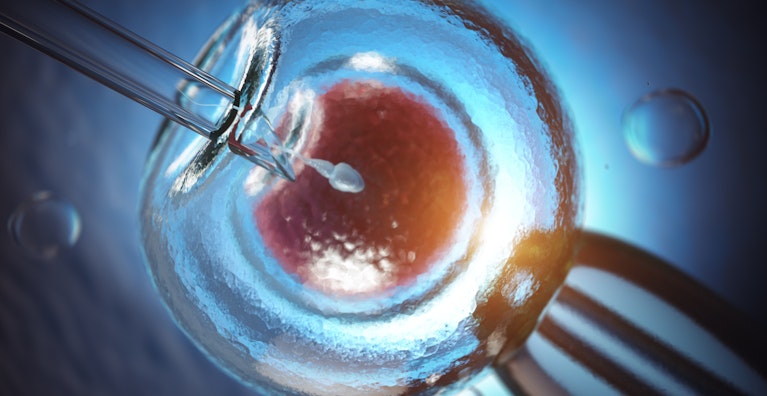Achieve Pregnancy through IVF
Author: Dr. Namita Singh
All the couples who have been struggling to conceive and fertility treatment like IUI and medications haven’t been successful for you, then IVF can deliver happiest news of all. In Vitro fertilization (IVF) is one of the most widely known type of Assisted Reproductive Technology opted by the women to become pregnant. It is a solution for nearly all causes of infertility. IVF is also the most effective and safest way to become pregnant and it is often pursued when other fertility treatments, such as fertility drugs or insemination have failed. Unlike the sister treatment- intrauterine or artificial insemination, in IVF the egg and sperm are retrieved and fertilized outside the body i.e. in laboratory.

IVF process is complex and consists of various steps. In some cases, hormone injections are given at beginning to stimulate multiple egg production. These injections consist of follicle- stimulating hormone (FSH) and Luteinizing Hormone (LH). Then, after a few days, eggs will be collected. A special needle is guided into the ovarian follicle and with the help of suction the fluid that contains egg is removed. The eggs are then separated from the fluid and are then fertilized with sperm, which can be done by two methods- conventional method or Intracytoplasmic Sperm Injection (ICSI). In conventional insemination, an egg is placed in a petri dish with sperm and left to fertilize naturally, whereas, in ICSI a single sperm is injected directly into a mature egg under a microscope using a sharp needle. They are kept in special incubator and are checked after 12- 24 hours. After the eggs are fertilized, the physician determines the best embryo or embryos and implants them in the uterus of the carrier using ultrasound guidance, in the hope that it will implant and continue to grow. This usually requires no anesthesia. For a pregnancy to begin, the embryo needs to attach itself to the lining of the uterus. Nearly, after two weeks, a doctor conducts a blood test to detect whether IVF was successful. If the embryo has successfully implanted, then Human chorionic gonadotropin (HCG) hormone will detect the pregnancy from blood. In some cases, it takes more than one transfer to achieve successful pregnancy.
IVF is most commonly recommended for men with low sperm count and for women with damaged or blocked fallopian tubes. It is also recommended when one or both parents carry potential genetic defects. The success rate of an IVF treatment depends upon various factors. These include maternal age, the quality of eggs, or cause of infertility.
In natural conception, sperm travels through the uterus to one of the fallopian tubes and fertilizes with an egg. It might sound simple; however, there are plethoras of factors that can prevent this from happening, such as, damaged or blocked fallopian tubes, genetic defects, low sperm count, or damaged uterus. IVF can be performed using the couples’ eggs and sperm. Whereas, in cases, where the patients are sterile or don’t have healthy eggs or sperm, they can use donor eggs/sperms to achieve pregnancy.
As with any medical treatment, IVF comes with some risk too. After the egg retrieval, the ovaries will be enlarged and patient might experience cramping or bloating. However, this will slowly fade and ovaries will return to their normal size. Many women may even experience a reaction to the medication given during the IVF procedure. Some may experience breast tenderness and increased vaginal discharge. IVF may also result in multiple births which can cause complications like Preterm labor, gestational diabetes, and maternal hemorrhage.
Source:
Share this on Social media
HEALTH DISCLAIMER
This blog provides general information and discussions about health and related subjects. The information and other content provided in this blog, or in any linked materials, are not intended and should not be construed as medical advice, nor is the information a substitute for professional medical expertise or treatment.
The content is for information purpose only and is not a medical advice. Qualified doctors have gathered information from reputable sources; however Credence Medicure Corporation is not responsible for errors or omissions in reporting or explanations. No individual should use the information, resources and tools contained herein to self diagnose or self treat any medical condition.
If you or any other person has a medical concern, you should consult with your health care provider or seek other professional medical treatment. Never disregard professional medical advice or delay in seeking it because of something that have read on this blog or in any linked materials. If you think you may have a medical emergency, call your doctor or emergency services immediately.
The opinions and views expressed on this blog and website have no relation to those of any academic, hospital, health practice or other institution.
Credence Medicure Corporation gives no assurance or warranty regarding the accuracy, timeliness or applicability of the content.
comments powered by Disqus

